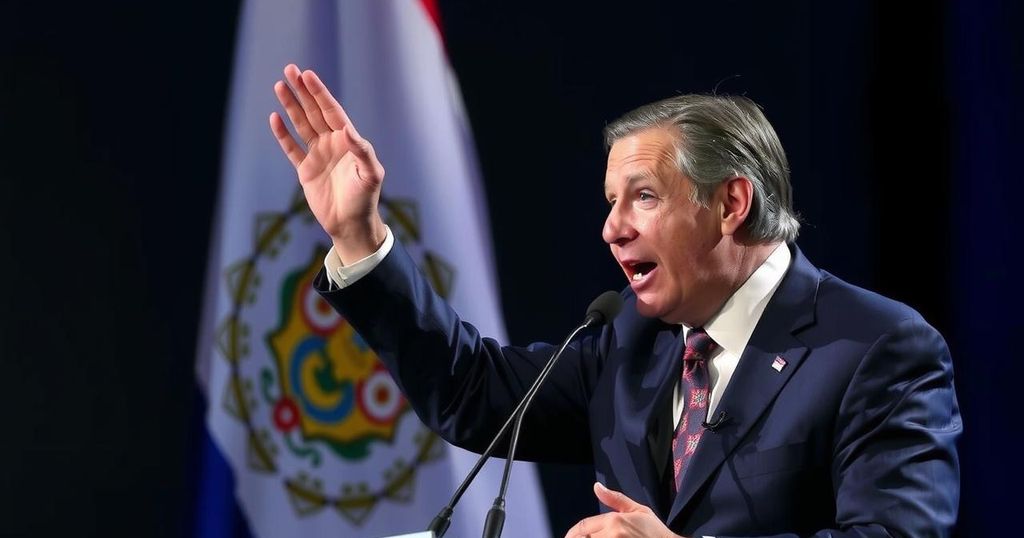World news
ÁLVARO DELGADO, AP, ASIA, BRITAIN, BROAD FRONT, DEMOCRACY, ELECTIONS, JAPAN, LACALLE POU, LUIS LACALLE POU, MONTEVIDEO, NORTH AMERICA, OPPOSITION, OR, POLITICS, PRESIDENTIAL ELECTION, SOUTH AMERICA, SOUTH KOREA, TRADE RELATIONS, UNITED STATES, URUGUAY, YAMANDÚ ORSI
Michael Grant
0 Comments
Yamandú Orsi Wins Uruguay Presidential Runoff, Marking Political Shift
Álvaro Delgado conceded to Yamandú Orsi in a tight presidential runoff in Uruguay, marking the return of the Broad Front to power after three years. Orsi plans to implement moderate policies resembling previous Broad Front governance, focusing on economic growth and social welfare, amid global trends of voter dissatisfaction with incumbent parties.
In a closely contested presidential runoff in Uruguay, Álvaro Delgado, the conservative candidate representing the ruling coalition, conceded defeat to his challenger, Yamandú Orsi, from the center-left Broad Front. As of the latest vote counts, Orsi emerged victorious with 784,523 votes compared to Delgado’s 771,434. Current President Luis Lacalle Pou of the National Party acknowledged Orsi’s win and expressed willingness to facilitate a smooth transition. Orsi’s election marks a significant political shift, ending the center-right governance that began with Lacalle Pou’s election in 2020, and restoring the Broad Front to power after a hiatus of three years.
Orsi, known for his moderate stance, plans to continue many of the policies previously championed by the Broad Front, including economic reforms and welfare initiatives aimed at addressing childhood poverty and organized crime without seeking radical changes. His victory reflects a broader global trend where voters dissatisfied with economic conditions are increasingly favoring opposition parties, as seen in numerous countries across the world.
Despite having faced challenges during the previous administration, which included rising crime rates and sluggish economic growth, Orsi’s promises focus on a mixed strategy of investment incentives and moderate social reforms, garnering support from voters seeking stability and continuity. Former President José “Pepe” Mujica, a prominent figure of the Broad Front, also showed support for Orsi, highlighting the importance of Uruguay’s democratic principles and citizen participation in elections.
The context of this electoral outcome encapsulates the broader political dynamics in Uruguay, which has historically been recognized for its political stability. The Broad Front previously held power for 15 years and enacted significant social reforms that aligned with progressive values, notably the legalization of abortion, same-sex marriage, and marijuana sales. The incumbent National Party, under Lacalle Pou, won power in 2020 after ending this lengthy period of Broad Front governance; however, the ongoing economic challenges and rising dissatisfaction with crime during his administration contributed to voters’ shift away from the ruling party in this recent election.
In conclusion, the election of Yamandú Orsi marks a pivotal moment for Uruguay as it transitions back to a center-left administration after a brief period of conservative governance. With Orsi’s promises of continuity and moderate reforms aiming to address ongoing socioeconomic issues, the results reflect a populace eager for change amidst global discontent with ruling parties. This electoral shift reinforces Uruguay’s reputation for balanced governance while confronting the realities of contemporary challenges.
Original Source: www.pbs.org




Post Comment